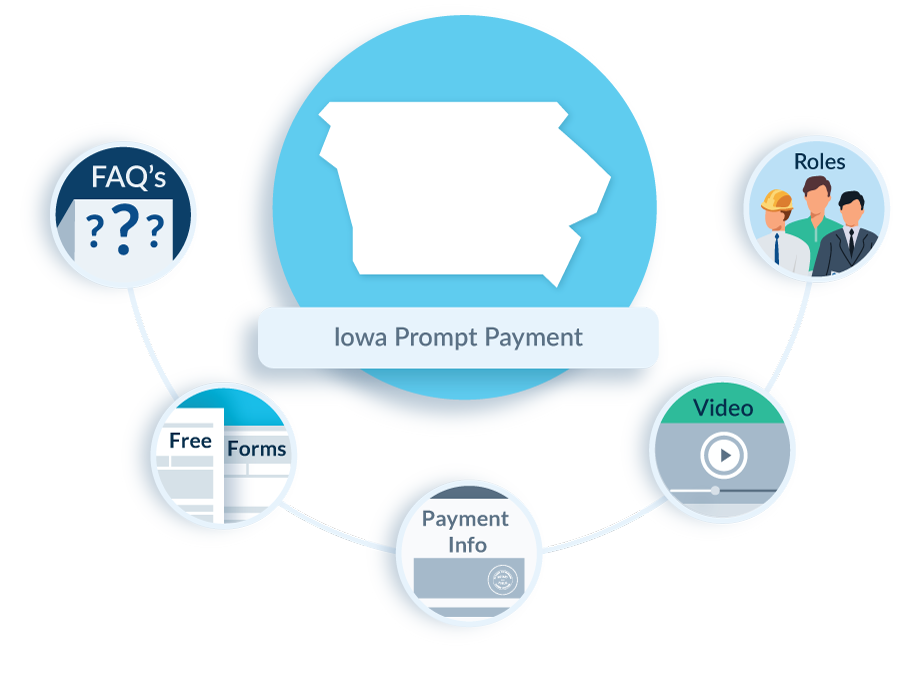Iowa Prompt Payment Requirements
- Private Jobs
- Public Jobs
- Top Links
Prime Contractors
Not specified in state statutes
Subcontractors
Not specified in state statutes
Suppliers
Not specified in state statutes
Interest & Fees
Not specified in state statutes
Prime Contractors
For Prime (General) Contractors, progress payments due within 14 days of invoice (can be modified by contract up to 30 days after invoice). Final/retainage payment due within 40 days from acceptance of work (can be modified by contract up to 50 days after acceptance).
Subcontractors
For Subcontractors, payment due within 7 days from receipt of payment from above. Note, only applies to first tie subs.
Suppliers
For Suppliers, payment due within 7 days from receipt of payment from above. Note, only applies to first tie subs.
Interest & Fees
Interest is set by the Iowa State Treasury; and attorney fees may be awarded to the prevailing party.
Prompt payment laws are a set of rules that regulate the acceptable amount of time in which payments must be made to contractors and subs. This is to ensure that everyone on a construction project is paid in a timely fashion. These statutes provide a framework for the timing of payments to ensure cash flow and working capital.
Projects Covered by Prompt Payment in Iowa
Indiana’s prompt payment laws, found in Iowa Code §§573.12, 573.14, and 573.21. These regulations only apply to public works projects. There are no prompt payment provisions for private projects.
Payment Deadlines for Public Projects
Once a prime contractor has performed in accordance with the terms of the contract, they may submit a request for progress payment to the contracting government agency. Upon receipt of the request, the public entity must release payment within 14 days. This payment deadline may be extended by contract, but only up to 30 days after receipt. As for final payments to the prime contractor, the entity is required to release payment within 40 days after the completion and final acceptance of the project. Again, this can be modified by the contract between the parties, but cannot exceed 50 days after acceptance.
After a prime contractor has received any type of payment from the public entity, they must make payments to their subcontractors or suppliers within 7 days. This timeline only applies to first-tier project participants, all other payments will be governed by the terms of the contract.
Penalties for Late Payment on Public Projects
If a payment on an Iowa public works project is late, or otherwise wrongfully withheld, interest will begin to accrue on the unpaid balance the day the payment becomes late. The rate of interest will be the rate of published by the Iowa State Treasury for the deposit of public funds for a comparable period of time. In addition to interest penalties, if the dispute goes to court or arbitration, the prevailing party may be awarded attorney fees as well.



